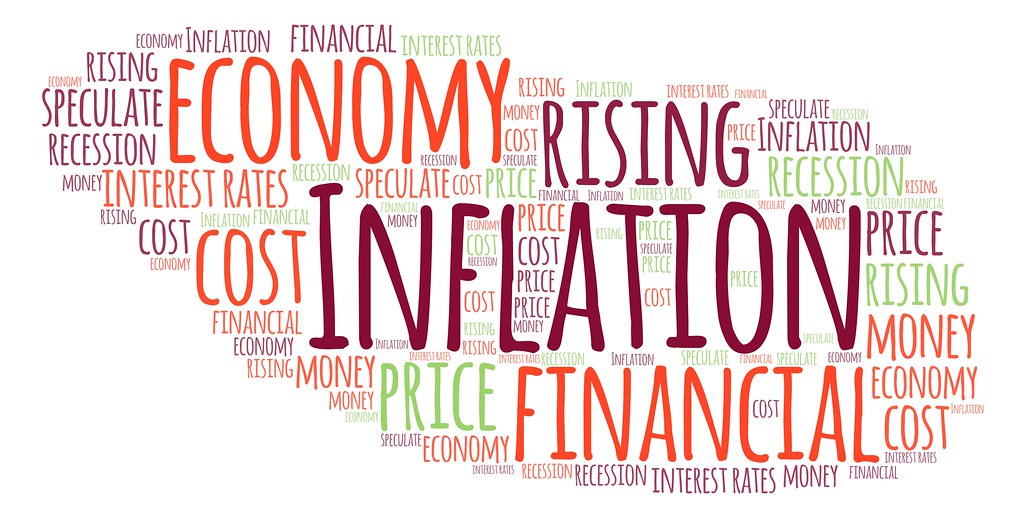Universal Basic Income does not cause inflation
Giving people largely unconditional, predictable forms of income to satisfy their basic needs has been identified as means of restoring social security, increasing equality and supporting growth in areas of countries that have been left behind by development and promoting public health overall.There is, however, widespread belief that any monetary intervention stimulates hyper-inflation of the form found in 1920s Germany, 1990s Argentina and 2000s Zimbabwe.

The idea that a Universal Basic Income fuels inflation makes no economic sense.
We live in an age of crisis. The Global Financial Crisis, austerity measures, climate change, Covid-19 and war have all reduced people’s standard of living, wellbeing and even predicted lifespan. It’s a dire outlook, made worse by a fast-evolving cost of living crisis. One way to ease the burden on people would be a Universal Basic Income.
In our last age of crisis, during WWII, Western governments took the momentous decision to tackle even more serious crises through massive state intervention. Governments rapidly committed themselves to costs with few precedents in creating social security systems, healthcare systems, nationalised industry and a range of other equality-promoting measures. At a time in which countries could, apparently, least afford those policies, policymakers saw no alternative than to spend big. The consequence was three decades of growth, increased standards of living, increased life expectancy and unprecedented technological development, ended only by war-induced increases in energy prices that sent inflation spiralling. As the Financial Times recently noted, the policies adopted over the past four decades have left countries such as Britain poor, but with some very rich people. Universal Basic Income has been presented as a means of addressing this crisis. Giving people largely unconditional, predictable forms of income to satisfy their basic needs has been identified as means of restoring social security, increasing equality and supporting growth in areas of countries that have been left behind by development and promoting public health overall.
There is, however, widespread belief that any monetary intervention stimulates hyper-inflation of the form found in 1920s Germany, 1990s Argentina and 2000s Zimbabwe. This is because people believe that giving consumers more money to spend leads to businesses charging higher prices to take advantage of increased purchasing power, creating a cycle in which employees demand higher wages to buy commodities, increasing the cost of production, cancelling out any benefit from the monetary intervention and actually reducing the standard of living overall. There is little evidence to support this view. UBI is no more or less inflationary than anything else that raises incomes – its impact would depend on whether the economy is at full employment, whether taxes are raised to pay for the scheme and various other factors. Where hyperinflation has occurred, it has occurred because essential goods are scarce, raising their value overall, and debt has been held in foreign currencies and paid in currencies declining in value by virtue of countries’ domestic production being disrupted or declining. Our current levels of inflation are caused by similar pressures as those in the 1970s: war leading to an increase in the cost of fossil fuels. If the logic behind objecting to a UBI on the basis of inflation were correct, then there ought to be absolutely no attempt to introduce new jobs or increase wages, since both increase purchasing power. If inflation is our sole concern, governments ought to slash wages and massively increase taxes. The point is that nobody wants either of those options because, even if they did reduce inflation, people would not want to have their wages reduced. UBI is a redistributive economic policy that can be funded by taxing those resources that contribute little to society: wealth and passive income from shares as well as income at the very top end of society. The resources of the rich are generally off-shored and contribute little to a country’s financial wellbeing. Analysis of the distributive impacts of UBI in the UK suggest its introduction would shift resources to those people and areas that need the investment most. That may increase the cost of housing and other goods in parts of countries that have been left behind, but this is a central means of enhancing community wealth and ‘Levelling Up’.
It is also a means of developing entrepreneurship and production within areas that have been deindustrialised. This support for production is, again, an essential means of supporting a bulwark against hyperinflation. Given that we live in market societies, the fear that this will lead to unchecked inflation is counterintuitive, since competition is supported by rising purchasing power and serves to check price increases. The alternative is simply to leave all but the metropolitan centres to wither away and to be dependent on the whims of finance. As our recent RSA report indicated, if governments are committed to resolving our age of crisis, they need to do as their predecessors did in the wake of WWII: invest in transformative policies with expensive up front costs to achieve the most significant social outcomes. Nothing is more expensive than undoing climate change, dealing with pandemics and repairing the damage of social decay. In that context, there is evidence a UBI is economically feasible and voters regard UBI as a necessary means of promoting social security.
(This story has not been edited by Devdiscourse staff and is auto-generated from a syndicated feed.)










